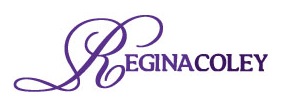In today’s rapidly evolving educational landscape, the one-size-fits-all approach to teaching is no longer sufficient. Students have diverse learning needs, interests, and abilities, and it’s crucial for educational programs to adapt to these variations. Personalized learning has emerged as a powerful solution to address these challenges, ensuring that every student has the opportunity to thrive academically. This article explores the significance of personalized learning in contemporary educational programs and why it is indispensable for the future of education.

The Need for Personalized Learning
1. Recognizing Individuality
Every student is unique, and their learning journeys should reflect that individuality. Personalized learning tailors educational experiences to each student’s strengths, weaknesses, and interests. By acknowledging these differences, educators can help students reach their full potential.
2. Fostering Intrinsic Motivation
One of the key benefits of personalized learning is its ability to nurture intrinsic motivation. When students have a say in what and how they learn, they become more engaged and invested in their education. This autonomy empowers them to take ownership of their learning process.
3. Addressing Learning Gaps
Traditional classrooms often struggle to address learning gaps among students. Personalized learning identifies these gaps early and provides targeted interventions, ensuring that no student is left behind. This approach is particularly essential in a post-pandemic world, where remote and hybrid learning have exacerbated educational disparities.
Implementing Personalized Learning
1. Technology Integration
Technology plays a pivotal role in personalized learning. Educational software, data analytics, and online resources enable educators to track student progress, offer tailored content, and provide immediate feedback. These tools help educators make data-driven decisions to optimize the learning experience.
2. Flexible Learning Paths
Personalized learning allows students to choose their learning paths, whether through project-based learning, self-paced modules, or collaborative activities. Educators must create a flexible curriculum that accommodates these diverse approaches, promoting student agency.
3. Continuous Assessment
Continuous assessment, rather than traditional exams, is a hallmark of personalized learning. Formative assessments help educators gauge student progress in real time, allowing for timely adjustments to the curriculum. This approach encourages a growth mindset and a focus on learning over grades.
Overcoming Challenges
While personalized learning offers tremendous advantages, it also presents challenges. These include equitable access to technology, teacher training, and the need for robust data privacy measures. Addressing these issues is crucial to ensure that personalized learning benefits all students.
Personalized learning is not a passing trend but a necessary evolution of education in the 21st century. It acknowledges the uniqueness of every student and empowers them to take charge of their education. As we move forward, it is imperative that educational programs embrace personalized learning to unlock the full potential of every learner. By doing so, we can pave the way for a brighter, more equitable future in education.
